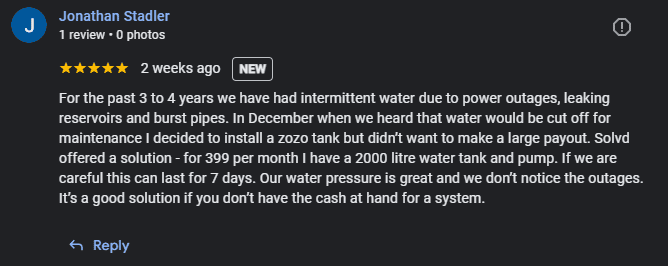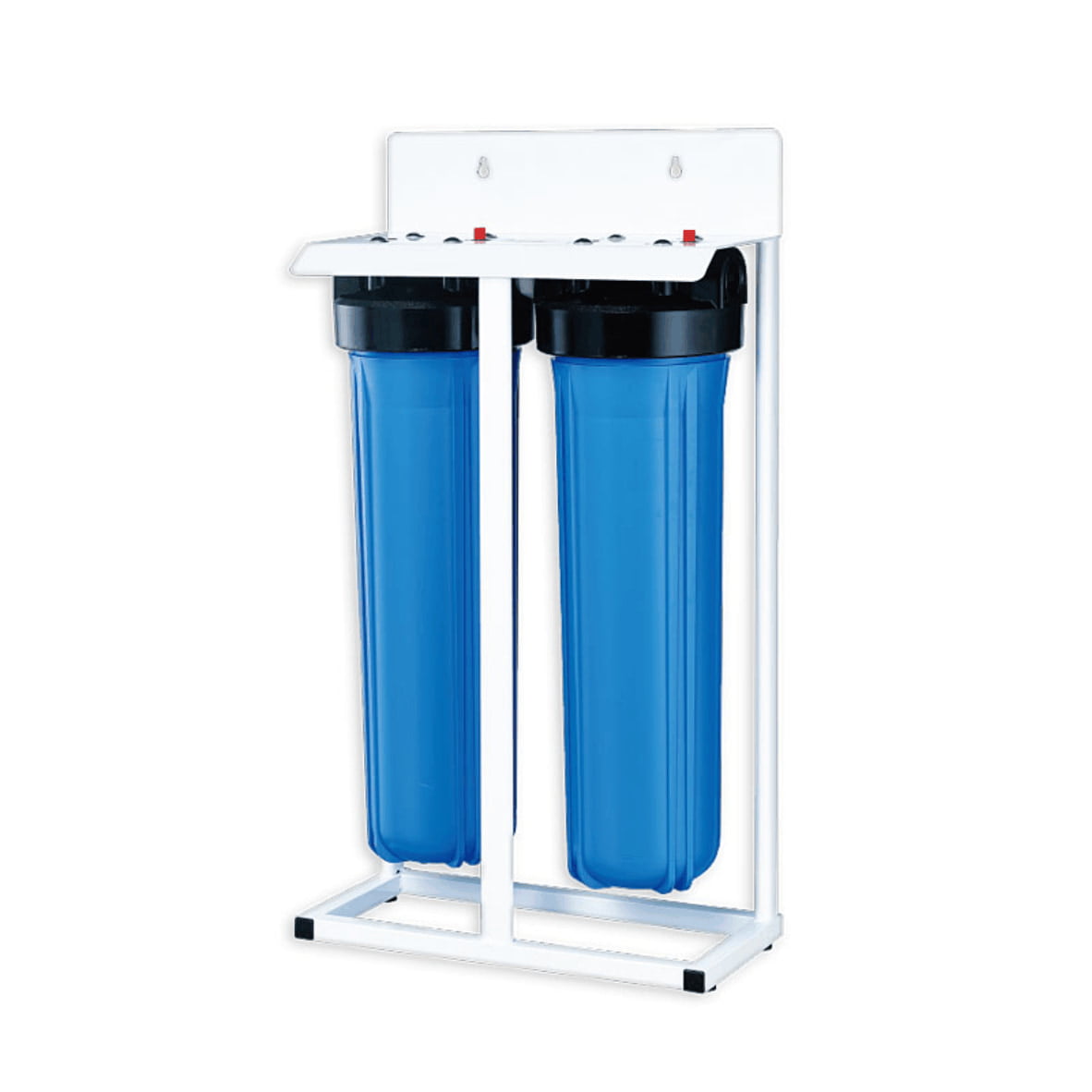How to Purify Borehole Water Safely and Efficiently
Borehole water quality can vary greatly depending on the source and location of the borehole. This variability means regular water analysis and testing is necessary to determine what contaminants are present and what impurities are in the water. By knowing what contaminants are in the water you can select the right treatment method. pH levels, flow rate and maximum pressure can affect the quality of borehole water. These must be monitored and controlled to make the water safe for human consumption. Knowing your borehole water quality is key to selecting the right treatment technology so you can have water that is not only safe to drink but meets the required standards for use.

Borehole Water Treatment Options
Borehole water treatment can be customised to your specific water treatment needs.
Options include reverse osmosis, borehole water filtration and disinfection methods.
Our treatment solutions can remove heavy metals, sediment, chlorine and other contaminants and improve water quality.
Maximum flow rate and maximum pressure must be considered when selecting a treatment solution.
Get a fresh and safe water supply, filtered and purified from our municipal water.
Borehole Water Treatment Success Stories

Filtration and Disinfection Methods for Boreholes
Filtration methods like activated carbon and sand filtration can remove impurities from water. These are our favoured solutions with minimal impact on yourselves and the environment. We also utilise disinfection methods like ozone treatment and UV treatment which can kill bacteria and other microorganisms in your water supply. An industrial grade solution like reverse osmosis can remove dissolved solids and other contaminants from borehole water. We also take care of all your water filters that remove contaminants and improve water quality. These are necessary for fresh, safe drinking water.
Cost Analysis and Budgeting for Borehole Water Treatment
When it comes to borehole water solution, a thorough cost analysis and budgeting exercise is necessary to make it cost effective and efficient. The costs of borehole water purification can vary greatly depending on the type of technology used, the size of the solution and the level of contamination in the water.
Here are some estimated costs for borehole water treatment:
Basic water testing: R500 - R2,000
Solution design and installation: R10,000 - R50,000
Reverse osmosis system: R5,000 - R20,000
Activated carbon filtration system: R3,000 - R10,000
UV disinfection system: R2,000 - R5,000
Management, repair and replacement costs: R1,000 - R5,000 per year
Please note that these are estimates and the actual cost of borehole water filtration may vary depending on your specific requirements.
To budget for borehole water purification consider the following:
Cost of the technology and equipment
Cost of installation and commissioning
Cost of maintenance and replacement parts
Cost of energy and water consumption
Cost of labor and personnel
By considering these factors you can create a comprehensive budget that covers all your borehole water treatment needs and make the process smooth and efficient.
Environmental Impact of Borehole Water
Borehole water treatment can have environmental impact depending on the type of treatment technology used and the level of contamination in the water. Here are some environmental impacts to consider:
Chemical Usage: Some borehole water technologies like activated carbon filtration require chemicals to remove contaminants from the water. If not disposed of properly these chemicals can harm the environment.
Energy Consumption: Borehole water treatment plants use energy to operate which contributes to greenhouse gas emissions and climate change.
Water Waste: Some borehole water technologies produce wastewater that need to be disposed of properly.
Land Use: Borehole water treatment solutions require land use which can take up several square metres of your property.
To minimize the environmental impact of borehole water treatment consider the following:
Use environmentally friendly technologies like UV disinfection and ceramic filtration.
Implement energy efficient systems and renewable energy sources like solar power.
Adopt proper waste management and disposal practices.
Use natural and sustainable materials.
Implement monitoring programs to ensure the solution operates efficiently and effectively.
By considering these you can minimize the environmental impact of your borehole water filtration and have a sustainable and environmentally friendly solution for your needs.
Maintenance and Monitoring of Treatment Systems
Regular maintenance and monitoring of treatment systems is crucial.
Maintenance tasks may include cleaning and replacing filters, checking for low or high flow rates and monitoring water quality.
Monitoring water quality will help identify any issues or contaminants present.
Regular maintenance and monitoring will extend the life of the treatment system.
